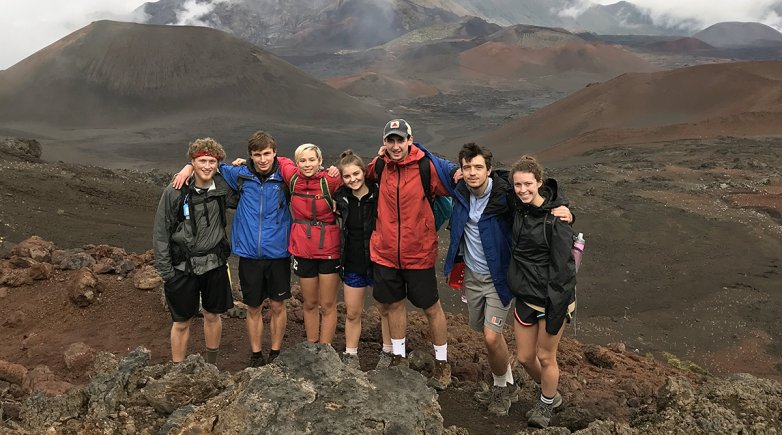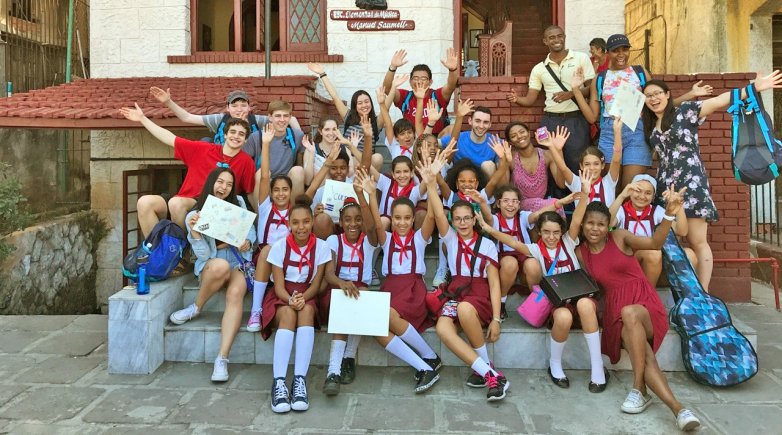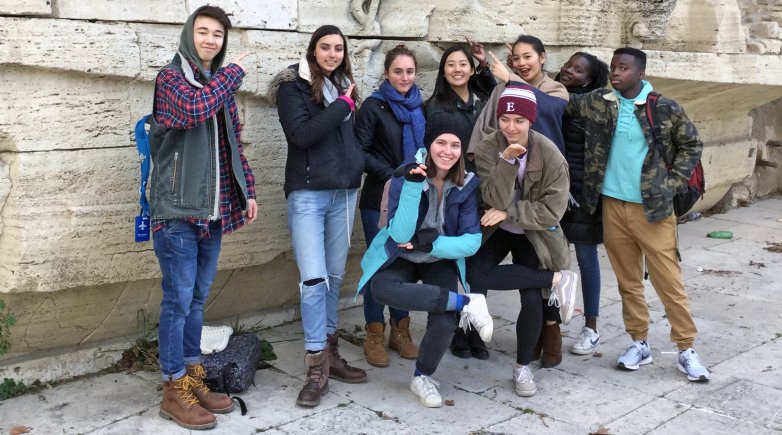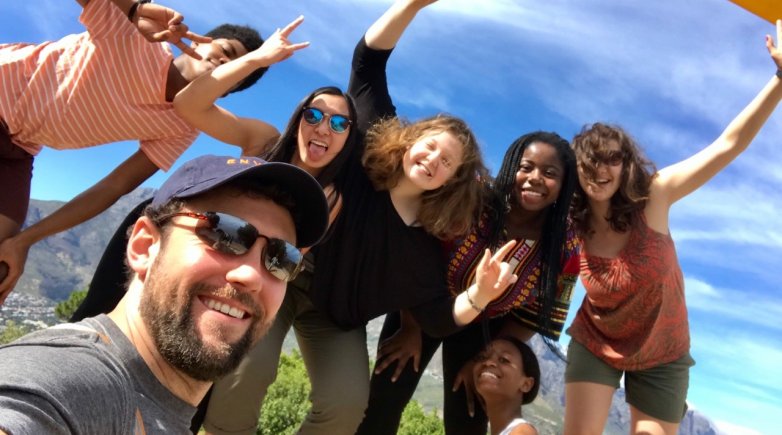Thanksgiving trips: Nashville, Alabama and Maui
Nearly three dozen students took advantage of rewarding experiential travel opportunities during the break.
Exonians explored the geology and biodiversity of Maui.
During three faculty-led trips, Exonians learned about the Civil War and the origins of America’s music industry; examined the history and impact of the Civil Rights movement; and studied geology, botany and biology while exploring Maui’s wilderness.
Making of America
From the Grande Ole Opry to the Chickamauga Battlefield and the homes of two American presidents, a small group of music lovers and history buffs spent time exploring the social and cultural history of the Civil War era and the roots of the American music industry.
Nine students traveled to Tennessee and Georgia for a series of place-based learning opportunities, guided by History Instructors Kent McConnell and Nolan Lincoln. Participants visited culturally and historically significant sites while traversing the Tennessee landscape. The first leg of the trip, centered in Nashville, featured stops at the Country Music Hall of fame, the Grand Olde Opry and the Johnny Cash Museum. Visits to RCA’s Studio B (where Elvis Presley and numerous artists recorded over 1,000 hit tunes) and the famed studios of Music Row (where Bob Dylan, Johnny Cash and others have recorded) helped round out the tour.
Students also took in Nashville’s historic waterfront and visited important Civil War sites before heading southeast to Chattanooga and on to Georgia for a visit to the Chickamauga Battlefield. Along the way, they visited two other major Civil War battlefields (Murfreesboro and Franklin) and the home of President James K. Polk, where they expanded their knowledge of the Mexican American War.
See pictures from the trip on Instagram.
Equal Justice Initiative
Seventeen students and three Academy instructors soaked in some southern culture while deepening their understanding of the Civil Rights movement, its bearing on current events, and the implications for the future.
Accompanied by Physical Education Instructor Toyin Augustus-Ikwuakor, Health Instructor Liz Hurley and Science Instructor Scott Saltman, the students toured museums, monuments and other places of historical significance in Selma and Montgomery. Stops included the State Capitol, the Civil Rights Memorial, the Alabama Department of Archives and History, the Ebenezer Baptist Church and a local high school.
A highlight of the trip was the chance to participate in a volunteer program at the Equal Justice Initiative, directed by civil rights attorney Bryan Stevenson. Stevenson, who works with EJI on behalf of wrongly convicted adults and youth who are sitting on death row, delivered the keynote address at Exeter’s MLK Day program in 2015. Speaking then about the urgent need to combat racial and class-based disparities in the justice system, Stevenson received a standing ovation at the end of his presentation. His visit inspired many Exonians to learn more about the inequities in America’s past and present, and to work toward a more equitable future.
See pictures from the trip on Instagram.
Read about the inaugural Thanksgiving trip to Alabama in “Finding Voice, Taking Action.”
Volcanic landscapes and endangered species
Eight lucky students and two faculty members flew west in November to study the geology and biodiversity of Maui.
Led by Science Instructors Townley Chisholm and Albert Leger, the trip focused on the different volcanic features of Maui, from lava tubes to cinder cones to the island’s massive extinct volcano, Haleakalā. Forming the majority of Maui’s surface, the volcano reaches 10,000 feet above sea level at its summit. (Mauna Kahalawai, a dormant volcano, forms Maui’s western edge.)
Students and faculty hiked through Maui’s wilderness and spent time snorkeling in the tropical waters of the Pacific. They learned about Hawaiian history and culture and observed the unique, endangered plant and bird species that evolved in isolation before humans arrived on the island.



